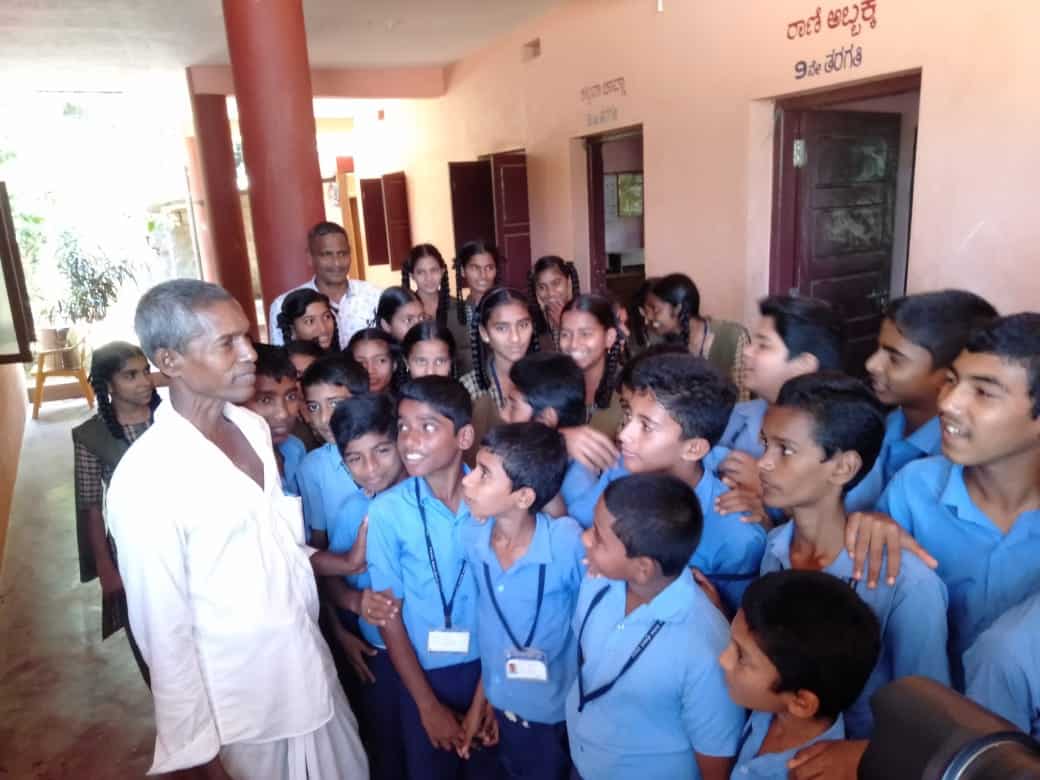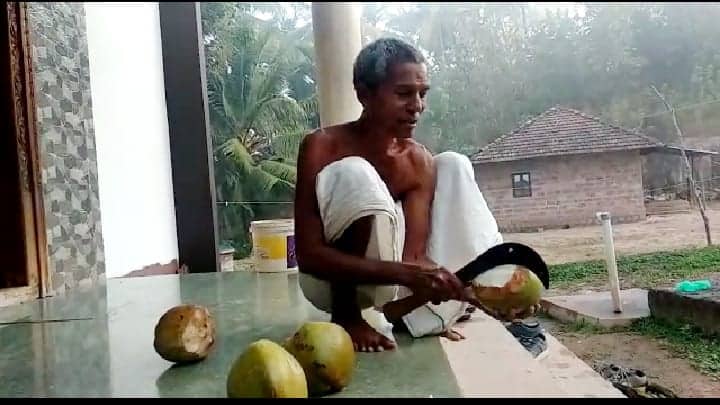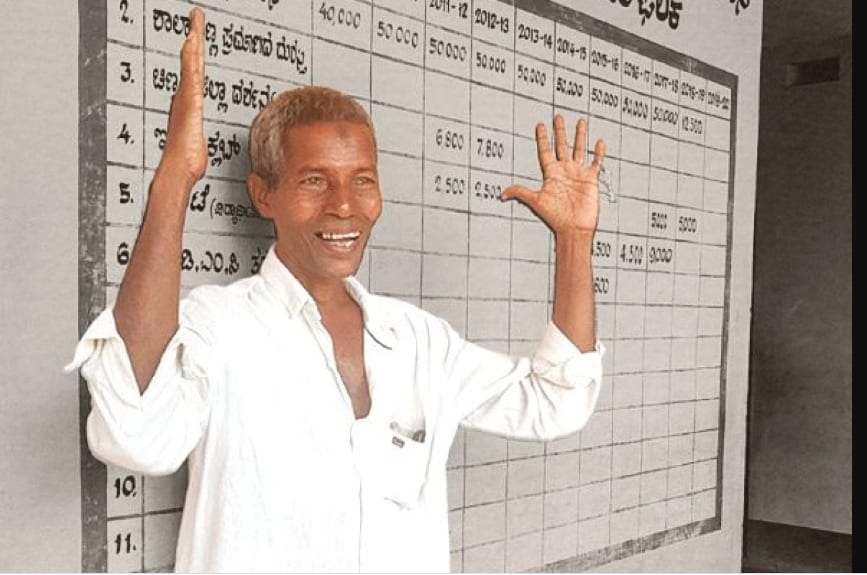By M. A. Siraj
Harekala Hajabba! Many among Muslims would wonder if this could be a Muslim name. Be sure, it is.
Hajabba, an orange-seller from Mangalore, received the news of him being conferred this year’s Padma Shree Award while standing in queue at a ration shop where BPL (below poverty line) card-holders are entitled to receive 35 kgs of free rice every month in Karnataka.
Hajabba received the Padma Shree, the fourth most known civilian award of the nation, for setting up Dakshin Kannada Zilla Panchayat Higher primary School in his native Newpadapu village in 2000 out of his meager savings. Karnataka Minister Suresh Kumar who felicitated him recently, has promised that the school would be added with a Pre-University College where children could study till 12th standard.

The thought of starting a school struck Hajabba in 2000 while selling oranges at the Mangalore bus stand. He could not tell the price of oranges to a foreigner couple in English. The couple had walked away noticing his inability to communicate. He felt bad and thought of setting up a school in the village, lest the same fate befell the children of there. He began to save some money and set up the school the same year within the premises of the village mosque. All that he earned those days was Rs. 150 a day. Despite being a celebrity, Hajabba has not given up his humble occupation. He sets out by bus every morning with a basket load of oranges to sell them at Mangalore.
Though his pioneering effort met with some ridicule, he remained undeterred. In 2004, his efforts began to be recognized. Kannada Prabha (Kannada daily from New Indian Express group) recognized him as the ‘Man of the Year’ in 2004. A year later CNN-IBN declared him ‘the Real Heroes’ awardee. In 2008, it was upgraded into a high school and granted affiliation from the State Secondary Education Board. Even as he raised some loans, help poured in from several quarters and the school moved to its own premises soon thereafter. Even the local authorities chipped in to provide him land. Story of his selfless service also became part of the University syllabus. Today the school has 164 students on its rolls.
Locals recount his passion and dedication for the cause. Hajabba would rise at dawn, sweep the floor and boil water for the school children. He has also been given the title ‘Akshara Santa’ (Saint of the letters) by some organization.

Hajabba hails from Newpadapu village, 10 kms east of Mangalore town. It comes under Harekala village panchayat. There is a tradition to attach village name with individual’s name in South Karnataka. The Mangalore district which is named as Dakshin Kannada (South Canara in colonial times) hosts a large Muslim ethnic group known as Beary community. Shafii maslak and Beary language are the integral elements of its social identity. Hajabba is a member of this community which has made great strides in terms of education and entrepreneurship.

‘Beary’ is a derivative of ‘Beopari’ (businessman). It is guessed that centuries ago most of them were engaged in trading, even doing maritime business. But gradually they took to farming and other occupations. Literacy was low. Yet since they spoke Beary language, an amalgam of Kannada, Malayalam and Tulu, they had integrated well with the Kannada-speaking masses. Moreover, the Beary language had no script of its own. So they used Kannada script for written expression. This facilitated their transition to Kannada, the official language of Karnataka and thereby to education, administration, folk culture, and journalism. The community which now comprises around half a million people, is mainly concentrated in Mangalore, Udupi and Chikamagalur district, although those in administration and business have panned out all over. The community has produced some very successful businessmen in the last four decades. It has even produced some Kannada litterateurs. The State Government has even constituted Beary Academy to promote the language and culture related to the ethnic group.
All that Hajabba’s story reminds us is that passion, dedication and determined effort could make up the deficiency of means.

